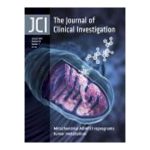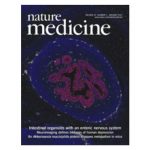Osteoblasts remotely supply lung tumors with cancer-promoting SiglecF(high) neutrophils.
Engblom C, Pfirschke C, Zilionis R, Da Silva Martins J, Bos SA, Courties G, Rickelt S, Severe N, Baryawno N, Faget J, Savova V, Zemmour D, Kline J, Siwicki M, Garris C, Pucci F, Liao HW, Lin YJ, Newton A, Yaghi OK, Iwamoto Y, Tricot B, Wojtkiewicz GR, Nahrendorf M, Cortez-Retamozo V, Meylan E, Hynes RO, Demay M, Klein A, Bredella MA, Scadden DT, Weissleder R, Pittet MJ.
Abstract
Bone marrow-derived myeloid cells can accumulate within tumors and foster cancer outgrowth. Local immune-neoplastic interactions have been intensively investigated, but the contribution of the systemic host environment to tumor growth remains poorly understood. Here, we show in mice and cancer patients (n = 70) that lung adenocarcinomas increase bone stromal activity in the absence of bone metastasis. Animal studies reveal that the cancer-induced bone phenotype involves bone-resident osteocalcin-expressing (Ocn+) osteoblastic cells. These cells promote cancer by remotely supplying a distinct subset of tumor-infiltrating SiglecFhigh neutrophils, which exhibit cancer-promoting properties. Experimentally reducing Ocn+ cell numbers suppresses the neutrophil response and lung tumor outgrowth. These observations posit osteoblasts as remote regulators of lung cancer and identify SiglecFhigh neutrophils as myeloid cell effectors of the osteoblast-driven protumoral response.





